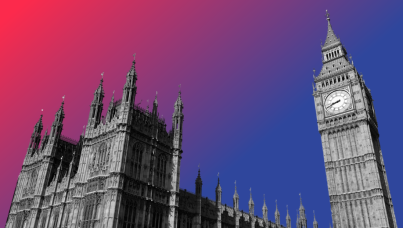Half of 16–34-year-olds trust news from online influencers, even with concerns about ‘widespread fake news’
A new Ipsos UK survey for Anthropy reveals that while television remains the most trusted news source for Britons, younger people in particular are regularly getting their news from online influencers. This is despite ‘fake news’ being seen as prevalent among online news from influencers among both younger people and the wider public.
Separate data from Ipsos’ Iris platform - the UK’s only industry endorsed online audience measurement solution - suggests that 15–24-year-old Britons spend an average of 122 hours and 57 minutes on social media a month. That accumulates to five days, or an entire working week every month.
Ipsos UK shared its full findings at Anthropy’s National Gathering on 27 March, founded by business leader John O’Brien MBE to gather purpose-led leaders.
Key findings
- Television continues to dominate news consumption: Half of Britons (50%) watch television news every day, making it the most frequently used source for news. However, daily usage varies by age, ranging from 65% of those 55 and over, down to just 34% among 18-34 year olds. Following television, online news sites and platforms are the second most popular way to consume news (35% daily), followed by radio and podcasts (26% daily).

- Trust in traditional media remains strong: Television is the most trusted to be a reliable source of news and information, with 79% of Britons placing a great deal or a fair amount of trust in it. It is also the most trusted news source among 16-34 year olds, with 76% expressing trust, slightly ahead of 74% from this age group who trust online news sites. This is followed by radio and podcasts (73%), with online news sites and platforms (68%) and newspapers and magazines (66%) not far behind.
- Trust in influencers remains low, except for younger age groups: Only 31% of Britons trust online news from influencers and individuals a great deal or a fair amount. However, this rises to almost half (47%) of 16–34-year-olds. In addition, 55% of younger people say they get online news from influencers every single day.
- ‘Fake news’ and misinformation: Three quarters (74%) of Britons say that ‘fake news’ and misinformation is prevalent in online news from influencers. Despite being significantly more likely to use and trust it, 77% of 16-34 year olds also say fake news is prevalent in online news from influencers. Just over half say fake news is prevalent on online news sites (55%), slightly fewer say the same about newspapers and magazines (46%), and just under four in ten think it is prevalent on radio and podcasts, and television (38%).

- Fact-checking and impartiality are key to building trust: Across all media types, the most common improvements Britons say would increase their trust in the news they get from each source are being more impartial and avoiding opinions in coverage, making clearer distinction between what is fact and what is opinion, and more frequent fact-checking of news stories. Providing news relevant to people's lives and ensuring accuracy are also highly ranked by audiences.
Commenting on the findings, Kelly Beaver, Chief Executive of Ipsos in the UK and Ireland, said:
While traditional media outlets, particularly television, continue to be seen as the most trusted sources for news, our research shows a clear divide, with over half of younger Britons consuming news from influencers every single day. However, there are significant concerns about its accuracy, with 77% of younger people also acknowledging that ‘fake news’ is prevalent in influencer-generated news content. Across all media types, there is a clear desire from the public for all media to prioritise fact-checking, impartiality, and relevance. These findings highlight the importance of transparency and accuracy in news reporting to maintain and build public trust in an increasingly fragmented and turbulent media landscape.
Technical note
- Ipsos interviewed a representative sample of 1,176 adults aged 18-75 across Great Britain. Polling was conducted online between the 14th and 17th March 2025.
- Data are weighted to match the profile of the population. All polls are subject to a wide range of potential sources of error.




